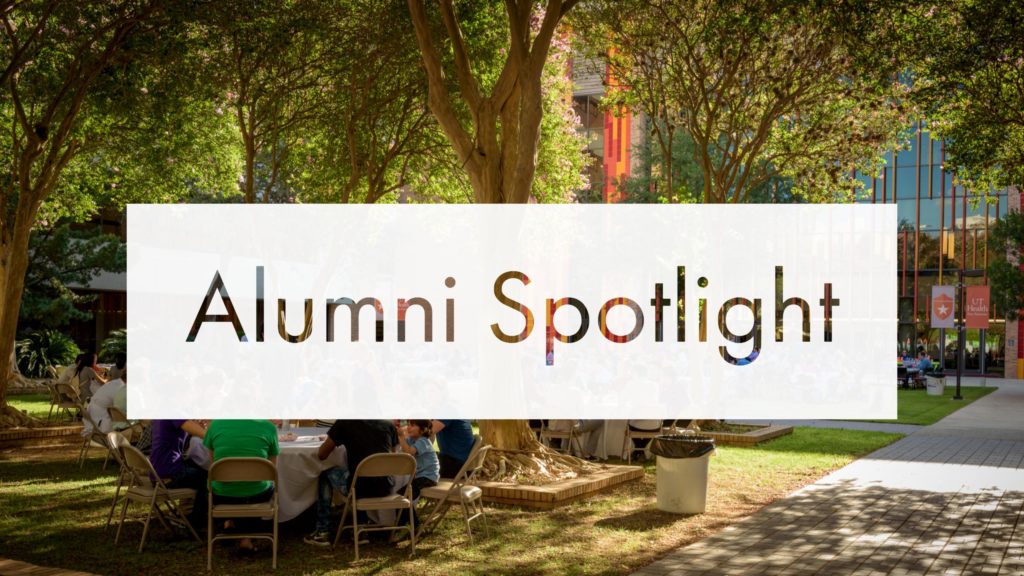Alumni Spotlight: Dr. Dayna Averitt, Assistant Professor of Biology at Texas Woman’s University
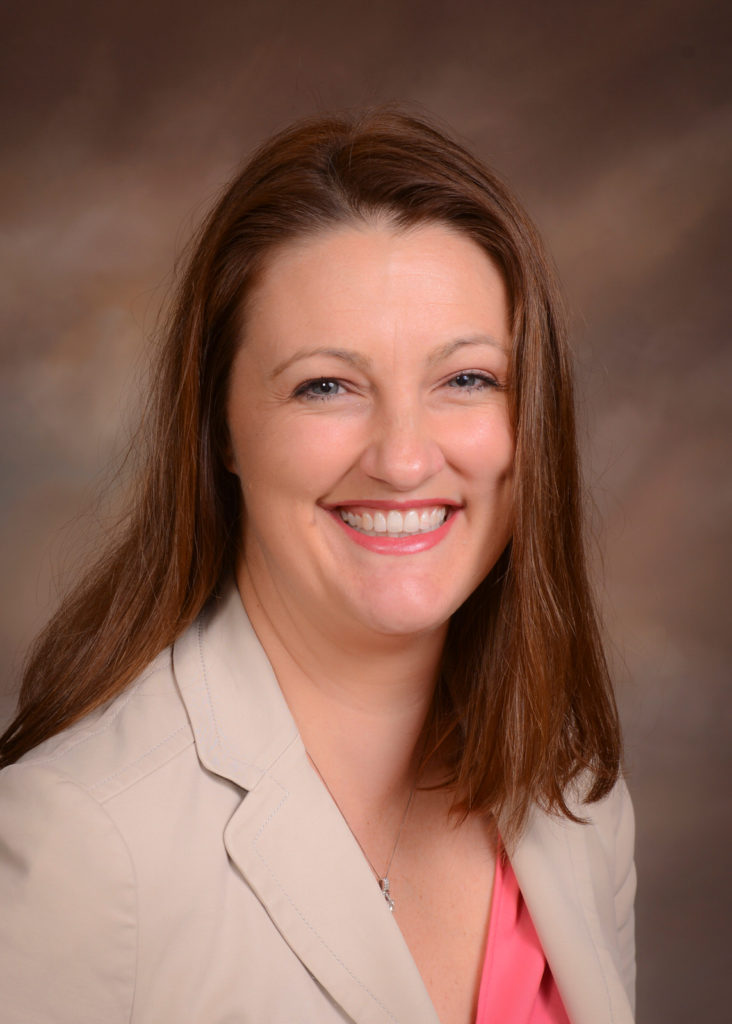 When did you first become interested in science?
When did you first become interested in science?
I enjoyed doing science projects as a kid, but it wasn’t until I was a Psychology Major at the University of Texas at Austin when I first experienced real research first-hand. My favorite college class was Physiological Psychology where I learned what research was and that students could be involved in research projects. I joined the neuroscience research lab of Dr. Yvon Delville. I absolutely loved the research environment and was surprised with how much fun it was! I worked diligently, was reliable, and received an Undergraduate Research Fellowship. I still have the certificate up in my office and I show it to my own undergrad researchers. I even ended up being an author on a published research paper, my first one. Dr. Delville encouraged me to go to graduate school to get a Ph.D. and connected me to Dr. Anne Murphy with whom I ended up doing my dissertation research in the pain field. Now I run my own pain research program and mentor undergraduate and graduate students in neuroscience research!
Why did you pick The University of Texas Health Science Center at San Antonio and your program?
I completed my postdoctoral training at UT Health San Antonio in the neuropharmacology research lab of Dr. Ken Hargreaves. I saw Dr. Hargreaves give a talk at a Spring Pain Meeting while I was a graduate student and he ended up at the top of my list of scientists with whom I was interested in doing my postdoctoral training. I ultimately chose UT Health San Antonio for three major reasons: (1) I wanted to work with Dr. Hargreaves as he is a leading scientist in the pain research field which would provide me with great training and connections, (2) so I could participate in the Craniofacial Oral-Biology Student Training in Academic Research (COSTAR) program which funded me as a postdoc and helped me to get my first grant, and (3) to participate in the M.S. in Clinical Investigation (MSCI) program to learn how to properly design, conduct, and analyze translational studies.
Tell me more about your career path.
While I was a postdoctoral fellow with Dr. Hargreaves from 2008-2011, I obtained an F32 training grant from the National Institute on Dental and Craniofacial Research (NIDCR) to study the role of the neurotransmitter serotonin on sensory neurons and pain processing. This training grant played a crucial role in gaining expertise in grant writing and submission, grant management, and attainment of an NIDCR R15 grant years later in my first academic appointment. In 2011, I accepted a Principal Investigator position in the Battlefield Pain Management Research Task Area at the US Army Institute of Surgical Research (USAISR) at the San Antonio Military Medical Center (SAMMC). There I managed intramurally funded research programs where I developed a model of a third-degree thermal injury, tested the role of stress on pain chronification, and found that preemptive local anesthesia could reduce the development of chronic neuropathic pain. In 2014, I returned to academia in accepting an Assistant Professor position in the Department of Biology at Texas Woman’s University.
Tell me about your current career, what do you do?
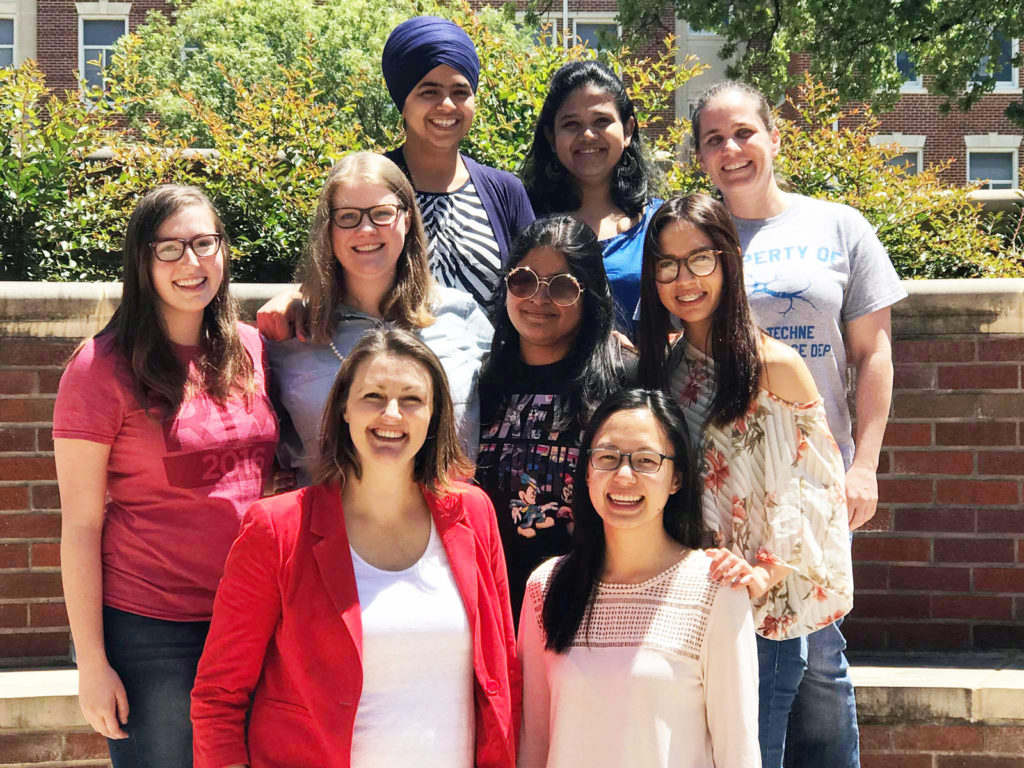
As an Assistant Professor of Biology at Texas Woman’s University, I teach undergraduate and graduate courses and manage a NIH-funded research program looking at the modulatory effects of hormones on pain and novel approaches to non-opioid analgesia. A large part of my job is mentoring undergraduates and graduate students in honor’s research projects, theses, and dissertations in my lab. I also serve on the Masters and Dissertation committees for other graduate students in the Biology department and provide advice and guidance on their studies. Besides teaching and research, I also provide service to the University through participating on various committees that play roles in advising the Provost on the research environment at the university, organizing on-campus conferences, and ensuring that federal regulations are being following in research occurring on campus.
What is a day like in your job?
Each day of the week can be quite different, which keeps things interesting. I typically arrive at work early while the campus is still pretty quiet and spend the morning looking at data that my students have emailed me the night before, commenting on drafts of my graduate students’ manuscripts, and working on abstracts for submission to be presented at a conference. Later in the day I often spend time ordering supplies for the lab, attending to various committee duties, or having meetings with students or faculty. I have office hours around lunch for students in my courses to get help on material, then I teach a class in the afternoon. Fridays are fun days when I have my lab meetings to plan research for the upcoming week. The department will often will have a guest speaker on campus, sometimes a person of my choosing, that we will take out to lunch prior to their talk in the afternoon. When I don’t go to lunch with the speaker, I attend the graduate student journal club to hear about the latest published paper in their field. Many days feel a bit frantic and I am often behind on some deadline, but I enjoy the variety and the pace most of the time!
How did the education you get at The University of Texas Health Science Center at San Antonio prepare you?
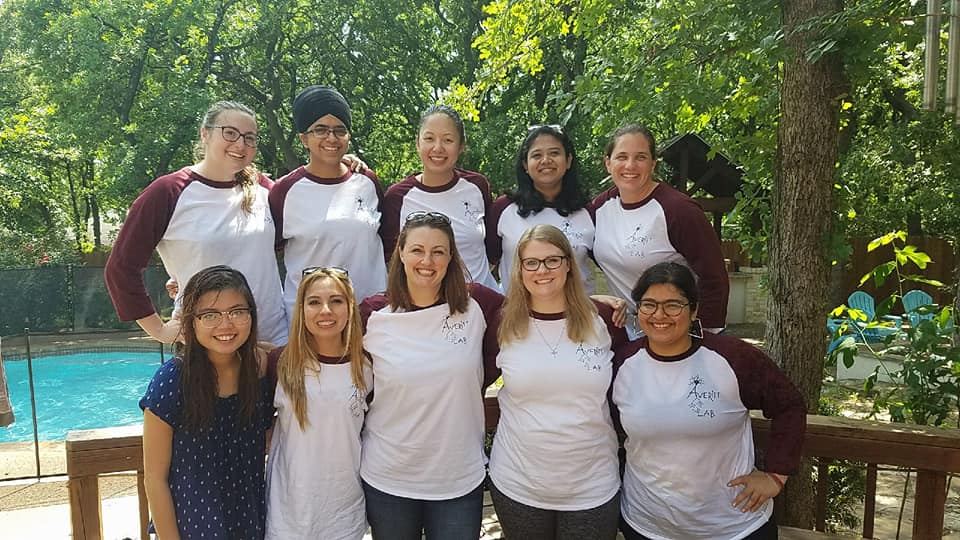 I did my postdoctoral training at UT Health San Antonio and also got my M.S. in Clinical Investigation (MSCI) along the way. The MSCI courses provided training in the history of ethics in human research, types of experimental design for clinical studies, statistics and working in a database with large numbers of subjects, data mining publicly accessible data, and presentation skills. These courses have helped me to analyze clinical data in the research literature, data mine hospital records for possible research leads, and to design and conduct studies on human tissues.
I did my postdoctoral training at UT Health San Antonio and also got my M.S. in Clinical Investigation (MSCI) along the way. The MSCI courses provided training in the history of ethics in human research, types of experimental design for clinical studies, statistics and working in a database with large numbers of subjects, data mining publicly accessible data, and presentation skills. These courses have helped me to analyze clinical data in the research literature, data mine hospital records for possible research leads, and to design and conduct studies on human tissues.
What is the most challenging part of your work?
While the variety of teaching, scholarship, and service duties I perform are a joy of the job and keep things from getting dull, it can also be very hard to focus on a single task. I try to work at home on either Tuesday or Thursday every week depending on which day I can keep free of meetings. On those days, I set aside the entire day to focus on writing a specific manuscript or grant or anything that requires a high level of focus that I can’t attain on campus. Early in the week, I identify which day I am going to work at home and I mark on my calendar what task I am going to work on that day and stick to it. Keeping a color-coded calendar and a “to do” list is critical to my sanity!
What is the most rewarding part of your work?
The part of my job that I find most rewarding is seeing my undergraduate and graduate students succeed under my mentorship. I feel so proud when students hard work gets recognized by people other than myself. In my field, this recognition occurs through having research published, receiving a travel award to an international conference, receiving awards and fellowships from the University for research quality, getting the postdoctoral position they interviewed for, or getting into graduate, dental, or medical school.
What has been your proudest achievement?
Academically, my proudest achievement so far was when I was finally awarded an NIH grant. I worked so hard and it took me three submissions to get my research program externally funded. Since it took three years, I greatly appreciate the intramural funding that I received from TWU to support my grant applications. More important than that, my proudest achievement in life was having my two daughters. I enjoy mentoring female students in the lab so that I can set an example on how to manage family life and work life. I don’t always get it right, but I think that’s important to recognize too!
What would you tell a current student interested in your career? Any advice?
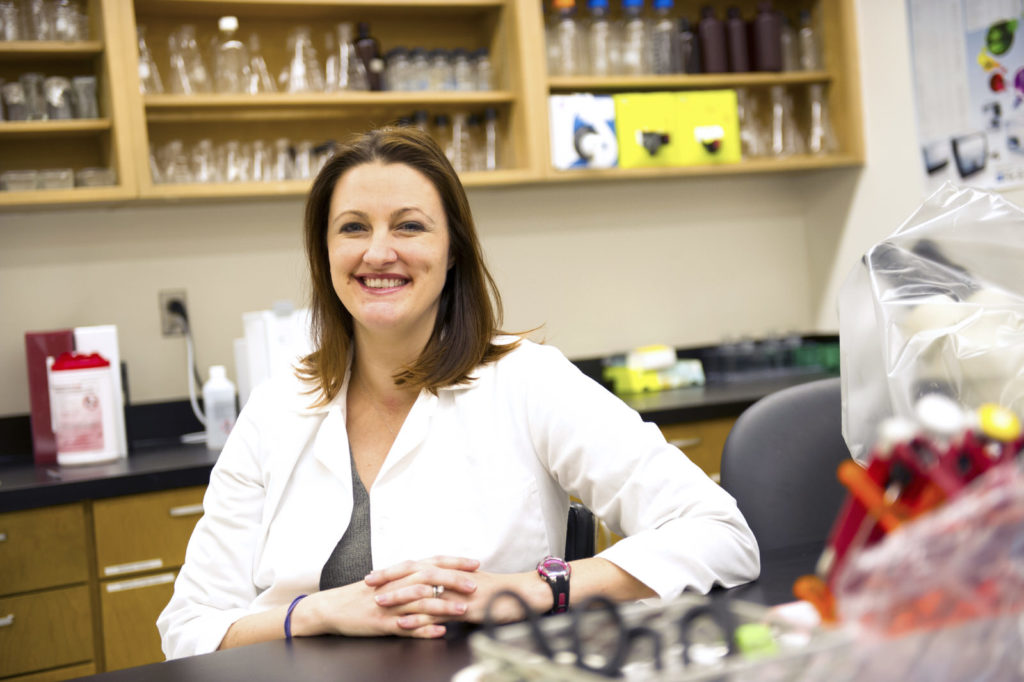 If you are an undergraduate student, go find a professor at your university to get involved in research. This experience is crucial for finding out if you enjoy the research environment and are good at the bench. It takes about 5 to 7 years to complete a Ph.D. so you want to make sure that you really want it! During your studies and throughout a career in science, it will become very important to have a work-life balance and I would advise that this balance is set early on in your studies. Completing a Ph.D. in science is hard and not for everyone. The professors of my first course in graduate school at Georgia State University warned us that graduate school is like boot camp, the faculty will break you down and if you make it past that then they will build you back up. It is important to have time away from your studies to decompress and enjoy life to reset your brain.
If you are an undergraduate student, go find a professor at your university to get involved in research. This experience is crucial for finding out if you enjoy the research environment and are good at the bench. It takes about 5 to 7 years to complete a Ph.D. so you want to make sure that you really want it! During your studies and throughout a career in science, it will become very important to have a work-life balance and I would advise that this balance is set early on in your studies. Completing a Ph.D. in science is hard and not for everyone. The professors of my first course in graduate school at Georgia State University warned us that graduate school is like boot camp, the faculty will break you down and if you make it past that then they will build you back up. It is important to have time away from your studies to decompress and enjoy life to reset your brain.
What do you like to do outside of work?
Being a scientist and professor is very cerebral, so outside of work I enjoy hobbies that involve physically activity. My two favorite hobbies are horseback riding (eventing, jumpers) and scuba diving. I started both of these hobbies in graduate school as a way to de-stress and get physical activity and they have stuck with me ever since. Most days, my time outside of work is spent with my family who also share my hobby of horseback riding.
What is your favorite quote?
“Unless someone like you cares a whole awful lot, nothing is going to get better. It’s not.” – Dr. Seuss, The Lorax

